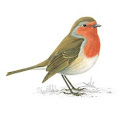Now, before I begin, I would just like to say that I love languages. Love. Words, and meanings, and all the other infinite bits and pieces that make up the crazy maze of a living tongue.
Love English, with its tricky spellings, its opposites-attract marriage of Anglo-Saxony and Latiny words, its directness, its distaste for the subjunctive, its ultra-absorbant acceptance of new words, Bounty paper towel-like. (For a paean to the best virtues of the American tongue, see Barbara Hamby's poem, "Ode to American English." You can read it here: http://memphiswordnerd.blogspot.com/2004/11/ode-to-american-english.html). Love Spanish, with its penchant for reflexive verbs, the poetry of its daily rhythms. Love Italian, how everything said in it should either be romantic or accompanied with shrugs and hand gesticulations. Love German, especially Austrian German, a happy hubbub of umlauts. Mostly, love Catalan; you see, I married one. And when I speak it, everyone is pleased as punch because it's not every day that a blonde foreigner is able to weave her sentences out of this descendant of Provençal silk. (Yes, I'm aware of my distinctly EU-15, limited knowledge base here. But I suspect I may even love Japanese, or Arabic, or Wolof.)
Yet, French has me a bit befuddled. Granted, I have only been in French class for a month now, and I'm getting along well enough. On the page, everything's great, and I understand the grammar perhaps more than your average classmate. But when it comes to making the sounds, it seems as though all the vowels are regularly squooshed together to form quite distinct hard and soft palate formations that I find it exceedingly difficult to emulate.
And the consonants: why do we hate the consonants, French-speakers? Poor little things, several of them at a time, dangling out there at the ends of words where they don't even get a hint of vocalization. Verb endings all sound the same, singulars and plurals, past and present, pronounced identically. Why does something as straightforward as "un" need to contain neither a "u" sound nor an "n" sound, but something more like ahng(=untranscribable nasal utterance)?
Furthermore, when a sentence is all put together, it tends to include lots of extra little "ce"s and "que"s that in English are decidedly pointless, and at the same time sounds about two words long because it all flows together like a little babbling brook. A nasally babbling brook with some of that French "r" thing.
Comparing notes with other French-learners, we've also come to the conclusion that small errors in pronunciation evidently render the words absolutely impossible to understand by native speakers. In English, or Spanish, or Catalan, even if a word is butchered accent-wise, you can probably make yourself understood if you put in the proper consonants and approximate the vowels in their place. Here, on the other hand, I have experienced trying to say a word or two in as many possible ways that I can ("dessert du jour," for example), while a waitress stares at me perplexedly and offers guesses that are incredibly off the mark. Somehow she thought I wanted eggs.
I should say to the Belgians' credit that they at least make a concerted effort, doomed to failure though it may be, to understand. And many, many people are willing to switch to English to help you out. (This in part due to the weird Flemish-French political dynamics, which I won't go into here.) In France, on the other hand, tough patooties. You will get no help, nor sympathy, nor dessert du jour.
Sorry for the complaints. I am sure that I will come to love French, in time. In fact, maybe I should decide to love it for the very things listed above that are ostensibly driving me crazy. Yes. J'aime le français.
12 October 2006
On French
Subscribe to:
Post Comments (Atom)

1 comment:
hahaha this is hilariously true
Post a Comment